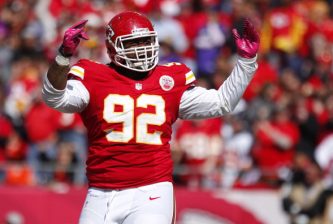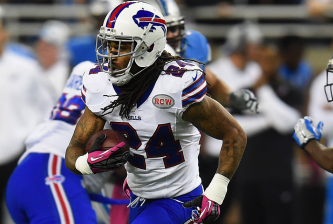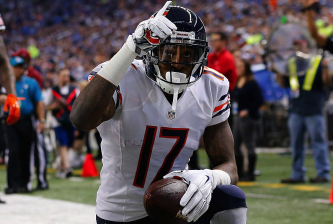You’re allowed to love football, and we’re allowed to judge you for loving football, just as you’re allowed to hate football and we’re allowed to judge you for hating it. We don’t share identical preferences or identical morals, and the world is a better place for it.
Some people may believe — based on the information we now have regarding relatively clear links between head trauma, CTE and the game of football, which have even been acknowledged by the NFL — that it would be foolish to allow kids to play the game. And so long as those kids belong to them, that’s their prerogative.
Others may believe — based on the perfectly valid notion that the game’s rewards still outweigh its risks — that those who don’t allow their kids to play football are fools. Wonderfully, the First Amendment gives them that right, but as Bruce Arians may be learning, it doesn’t protect them from backlash.
Representatives from either camp can protest against or on behalf of the sport, and I don’t think either — at least at this stage — can stake a claim to being definitively right.
If one day it is determined by science that irreversible brain damage is an unavoidable side effect suffered by anyone who plays football, it’ll probably become difficult for anyone to justify the existence of youth tackle football. In fact, an argument could at that point be made that forcing kids to play tackle football despite that knowledge would be tantamount to child abuse. But right now, there is no verdict in that regard, and leading researchers continue to insist that the jury could be out a while longer.
If I ever parent a child who wants to play the sport, I’ll think long and hard. I’ll consider the research we have to work with and I’ll try to suppress sensationalized anecdotes that come from an increasingly politically correct society which has seemingly embraced fear-mongering. I’ll consider that there’s a very good chance my kid won’t play college or NFL football and thus won’t likely spend more than a few years playing the game. I’ll consider the many tangible and intangible benefits, the many lessons that kids take away from the game. And then I’ll make an educated decision. That’s hardly foolish, but it is somewhat personal.
In one way, that entire realm and process has little to do with college or NFL football, because grown men can do whatever the hell grown men want. But it’s probably safe to assume that losing the grassroots would represent a death knell for the sport as we know it at all levels.
That’s a shame, because the only reason I sometimes feel guilty supporting the NFL is because I know that it inspires many kids and many parents to take risks that may ruin their lives. Again, I know it’s likely that only a very small segment of the population (that anecdotal segment which is so often used to monger fear) will be affected by CTE merely because of the presence of the NFL, but what if one day we learn that the net is actually a lot wider? At what point will it be difficult for me to rationalize making money off of pro football as a sports journalist and/or giving money to pro football as a fan?
Right now, I love football because something in me is infatuated with a chess match which uses humans as pawns, even if that comparison becomes increasingly morbid by the year. Right now, I love football because deep touchdown passes are exciting and fourth-quarter pick-sixes are thrilling and — frankly — big hits can be exhilarating.
Right now, I hate football because I fear that science — which I trust unquestionably — is eventually going to present me with facts that make it impossible to to enjoy the chess match, the deep touchdown passes, the pick-sixes and especially the big hits.
I’m not there yet. Some of you have already reached that point. Many of you might never arrive. And that’s OK. This is supposed to be complicated.




